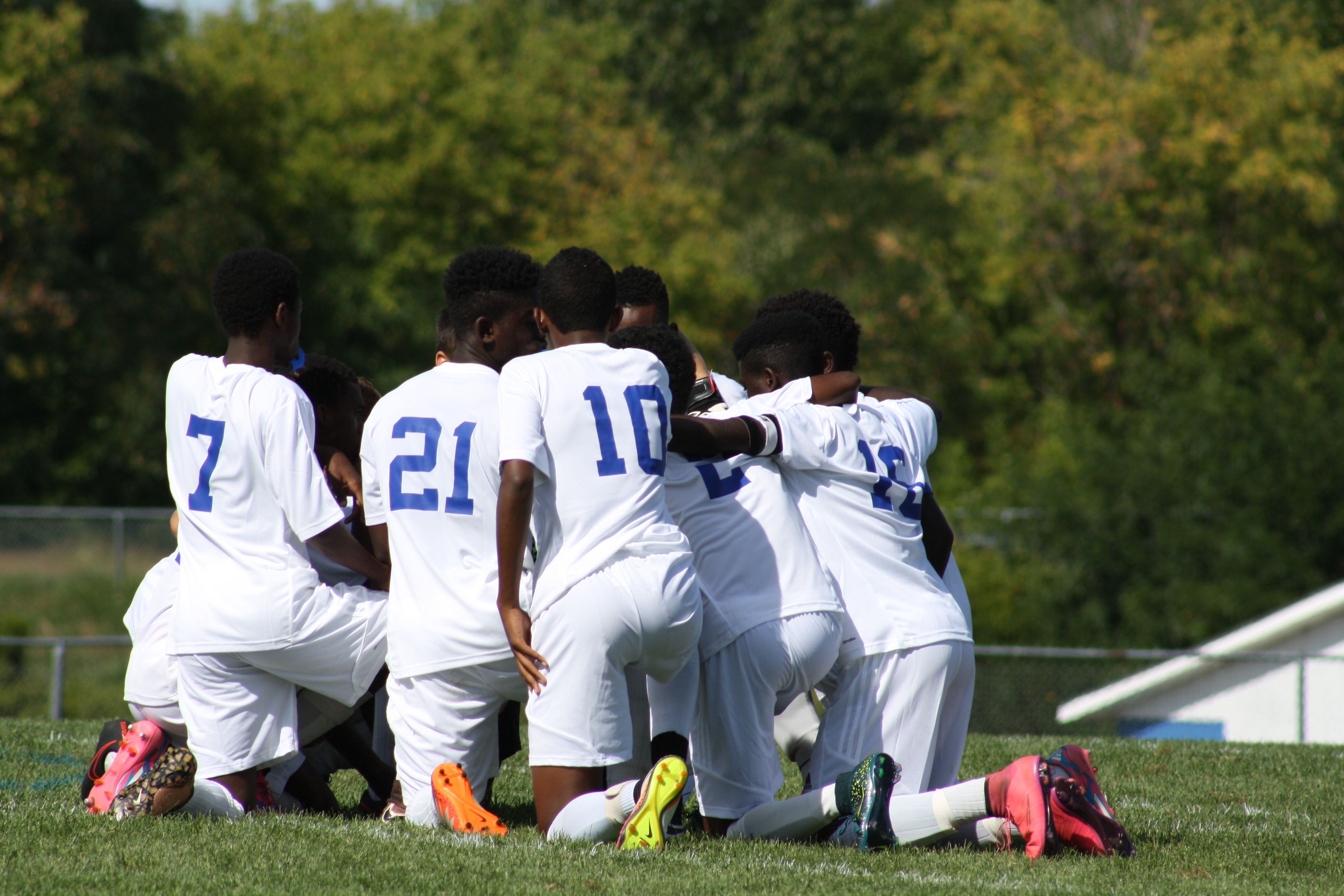Episode 118: How Refugees, And A Soccer Team, Changed A Town; A “Greener” Way To Grow Weed

This week we listen to stories from our archive that explore new conservation efforts taking place around New England, including the effort to reduce the amount of energy needed to grow marijuana, and a forest that serves as a home for wildlife and helps store carbon to meet energy goals set thousands of miles away. Plus, we hear from two young men about what it is like growing up black in a mostly white town. We also discuss how a soccer team united a divided town. Finally, we learn about heavyweight champion Rocky Marciano’s New England roots and visit a baseball museum tucked into a mall in the Berkshires.
It’s NEXT.
*A warning to our audience: this episode includes a racial slur.
Marijuana Growers Go Green
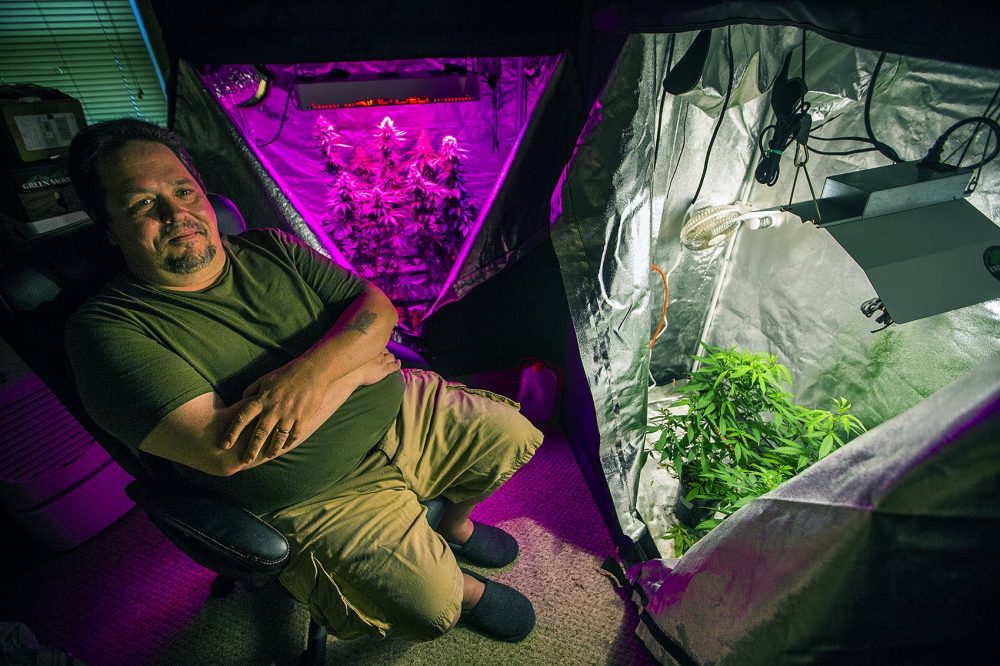
Peter Bernard, president of the Massachusetts Growers Advocacy Council, sits in his small grow room in his Taunton home, where he uses both LED and halide lights. Photo by Jesse Costa for WBUR

STEM Cultivation co-founder and chief technology officer Chris Denaro slides PVC columns, each one holding up to 12 cannabis plants, into the center aisle of the STEM Box. Photo by Jesse Costa for WBUR
Now that recreational marijuana has been legalized in Vermont and Massachusetts, the industry is facing new challenges around the region.
Cultivators in Massachusetts are facing constraints about how much energy they are allowed to use, due to the state’s tough regulations. But marijuana is not very energy efficient, in fact, the typical pot-growing facility uses eight to ten times as much energy as an office of a similar size. And, due to the state’s Global Warming Solutions Act, the industry is being forced to find new ways to go green.
WBUR’s Bruce Gellerman introduces us to some of the people who are helping Massachusetts’ marijuana growers reach their energy reduction goals.
A New Market For Conservation Projects
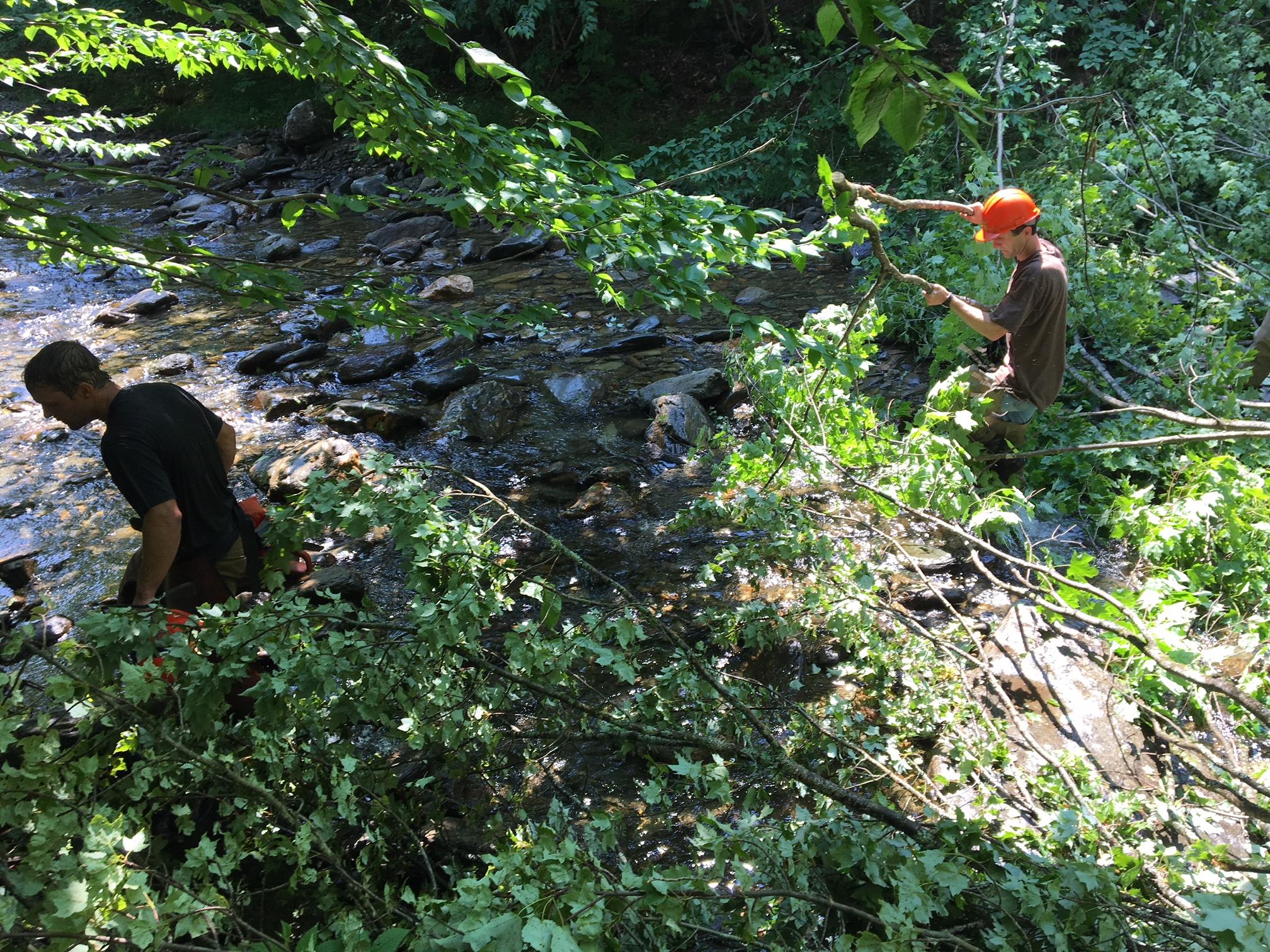
To improve habitat on Calavale Brook, first, you have to drop some trees in the stream. Photo by John Dillon for VPR
A conservation group is preserving a 5,400-acre tract of forest in Northern Vermont. And they’re creating a new model for how to fund conservation efforts in the process: in addition to being a home for wildlife, this forest will also be used to store carbon to meet greenhouse gas goals set 3,000 miles away in California.
As VPR’s John Dillon reports, the money from that deal with help the group pay for future restoration projects.
Two Young Men Reckon with Race in New Hampshire
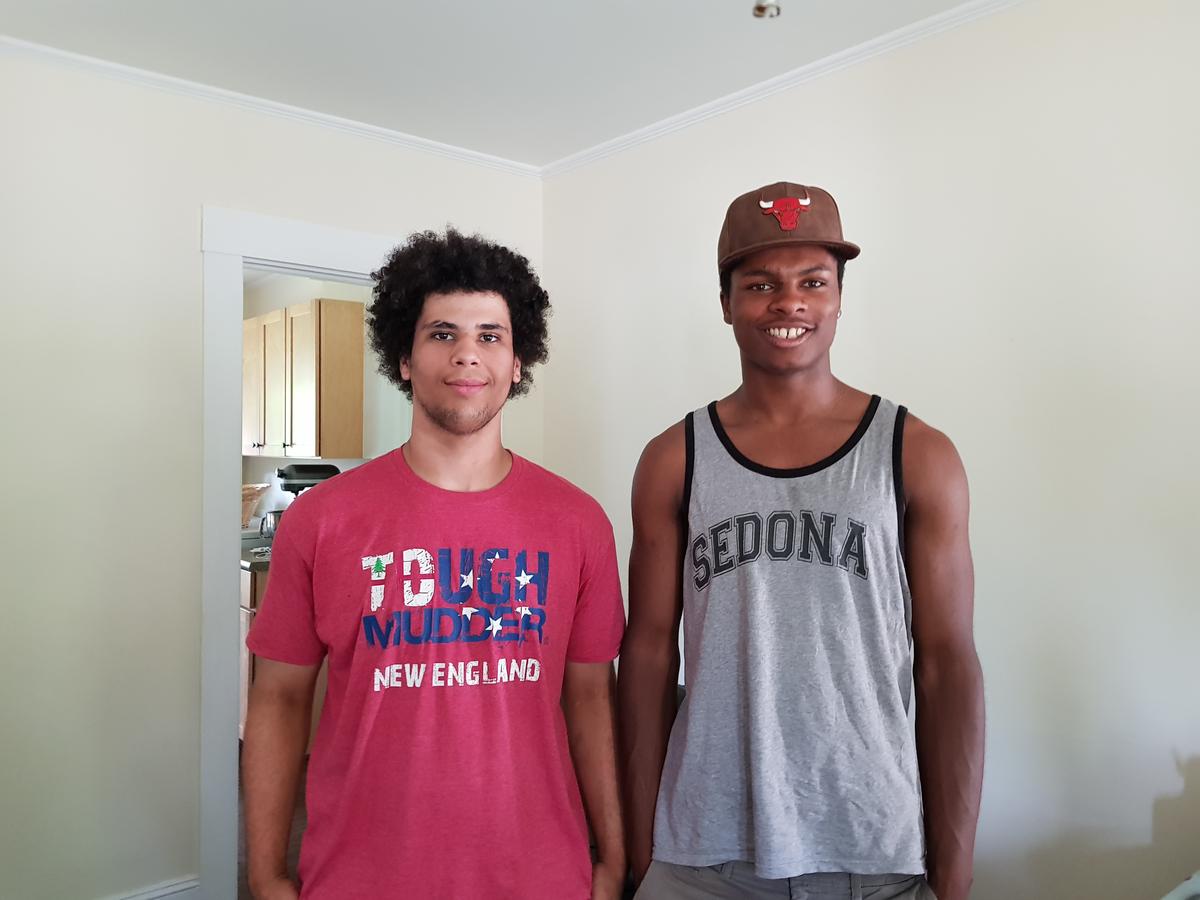
Nick Sanderson, left, and Will Krug, right, have been friends for more than 15 years. The two are high school seniors, and together they’ve navigated life as young black men in a predominately white area. Photo by Daniela Allee for NHPR
New Hampshire has been struggling with questions of race and racism since an attempted hanging of a young biracial boy last year in the town of Claremont, and New Hampshire Public radio has been talking with residents about it. Reporter Daniela Allee takes us to the town of Conway where two friends have been grappling with the realities of growing up black in a majority white town.
This piece is part of an NHPR series about race in New Hampshire, which features a conversation with the man who was the superintendent of schools at the time of the hanging incident as he reckons with race. They also profile one man who was inspired to start reaching out to black students in the area.
If you are interested in learning more about racial inequality in schools around our country, check out Pro Publica’s interactive database, “Miseducation: Is There Racial Inequality at Your School?.”
How A Soccer Team Saved A Changing New England Town
In the late 1990s, Lewiston, Maine was in the midst of an economic downturn. But that all changed in 2001 when thousands of Somali refugees began arriving in the city. Over the decade, 7,000 African immigrants moved to the city of 36,000. And Lewiston was not always welcoming. In 2002 the mayor wrote a letter to the Somali community urging them to tell their friends and families to stop coming. One student wrote “Go back to Africa” on a mirror at a Lewiston high school.
But attitudes towards the refugee community began to change when Coach Mike McGraw discovered that many of the young immigrants had a talent for soccer. As these students began to join the team and win more games, the city began to accept the new population.
Amy Bass tells the story of how this team changed the town in her new book, One Goal: A Coach, A Team, And the Game that Brought a Divided Town Together. She joins us to tell us about the team’s quest for their first state championship.
Read an excerpt from Amy’s book and see more photos of the Lewiston soccer team.
Rocky Marciano’s New England Roots
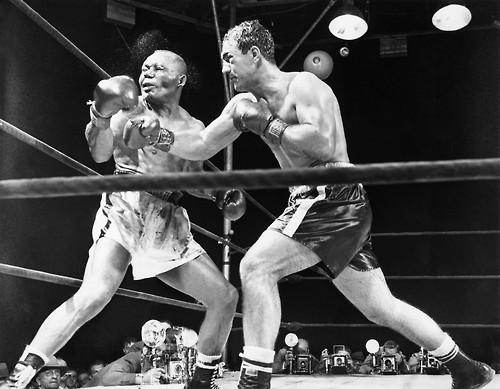
Rocky Marciano fights Jersey Joe Walcott in 1952. Photo courtesy of RV1864, Flickr, Creative Commons
Author Mike Stanton has spent a career chronicling the world of sports and organized crime. His latest book is about the man known by many as the greatest heavyweight champion of all time, and one of New England’s own sports legends.
Rocky Marciano was born Rocco Marchegiano, he grew up in Brockton, MA. His first professional fight was in Holyoke, MA. And most of his professional fights throughout his career were fought in Providence, RI.
Stanton, a journalism professor at the University of Connecticut, recently released his new book, Unbeaten: Rocky Marciano’s Fight for Perfection in a Crooked World. He joined us to discuss Marciano’s career and the history of boxing in New England.
Read an excerpt of Unbeaten here.
Baseball Museum Showcases A Forgotten History

Entrance to the Baseball in the Berkshires Museum. Photo courtesy of the Baseball in the Berkshires Museum
As more towns try to draw business back to their main streets, many shopping malls across the region have become nearly abandoned. With more empty storefronts than full ones, the 30-year-old Berkshire Mall in Lanesborough, Massachusetts, is one of them. But near Spencer Gifts and a now-shuttered Hollister, something rather unexpected is alive and well: baseball. Rebecca Sheir takes us on a tour of the Baseball in the Berkshires Museum.
Photo at the top of the page: Coach Mike McGraw and the Lewiston Blue Devils during practice. Photo courtesy of Amy Bass.
About NEXT
NEXT is produced at Connecticut Public Radio
Host: John Dankosky
Producer: Lily Tyson
Digital Producer: Carlos Mejia
Executive Producer: Catie Talarski
Contributors to this episode: Bruce Gellerman, John Dillon, Daniela Allee, Rebecca Sheir
Music: Todd Merrell, “New England” by Goodnight Blue Moon, “Olde Salooner Blues” by Midnight North, “Blue” by First Aid Kit
Stream every episode of NEXT.
We appreciate your feedback! Send critiques, suggestions, questions, and ideas to next@wnpr.org. Follow us on Facebook and Twitter.
Help us spread the word! If you like what you hear, rate and review us on iTunes.


